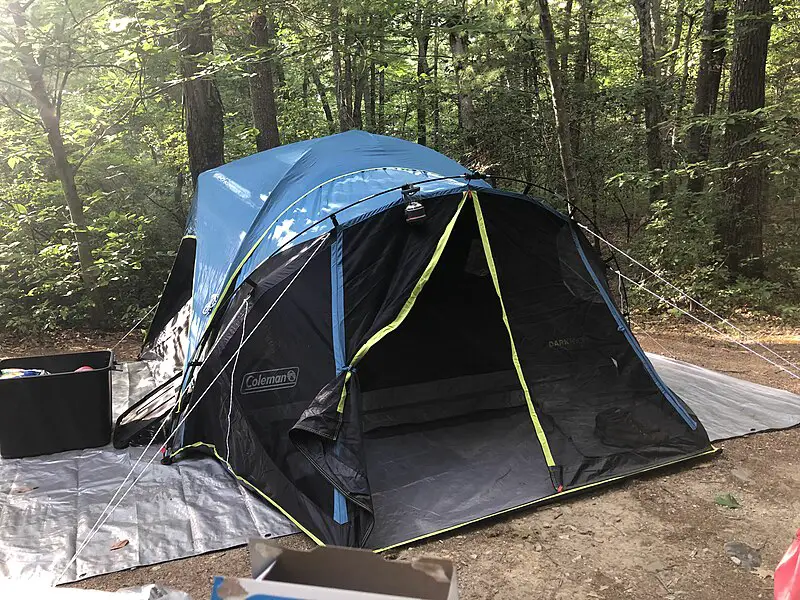Discover eco-friendly camping gear and practices in this comprehensive guide. Embrace sustainability, protect nature, and have amazing adventures.
Hey there, fellow nature enthusiasts and happy campers. Are you eager to embark on a journey that’s not only exciting but also gentle on Mother Earth?
Well, you’ve come to the right place. In this eco-conscious camping guide, we’ll equip you with the knowledge to embrace sustainability while you enjoy the great outdoors.
Camping can be an incredible experience, and doing it sustainably adds a whole new dimension of fulfillment. Let’s dive into the world of eco-friendly camping and discover some fantastic gear choices that will make your outdoor adventures more green, more responsible, and more unforgettable.
Understanding the Essence of Eco-Friendly Camping
Before we delve into the gear, let’s take a moment to appreciate why eco-friendly camping is so crucial. As responsible campers, we’re called to cherish and protect the breathtaking landscapes we explore. We want future generations to revel in the beauty of untouched nature as we do today.
Picture this: sitting around a campfire, toasting marshmallows guilt-free, knowing you’re doing your part in preserving this incredible planet. Let’s learn how to camp like a nature-loving boss.
Eco-Friendly Camping Gear Essentials
Let’s get down to the nitty-gritty and explore some must-have eco-friendly camping gear that will make your adventures more sustainable.
Solar-Powered Camping Lights
Brighten up your nights with solar-powered camping light. These little sun-powered wonders are not only energy-efficient but also lightweight and portable.
They soak up the sun during the day and illuminate your campsite with a warm glow when the stars come out to play.
Solar-powered camping lights come in various styles, from lanterns to string lights, providing both practical illumination and a cozy ambiance. They’re easy to use, with built-in solar panels that charge during the day and automatically turn on at night.
Say goodbye to the hassle of carrying extra batteries, and embrace the magic of renewable energy.
Biodegradable Camping Utensils
Toss away those single-use plastic forks and knives and say hello to biodegradable camping utensils. Made from materials like cornstarch, bamboo, or wood, these utensils are sturdy enough for your campsite feast and gentle enough for Mother Nature.
By using biodegradable camping utensils, you can significantly reduce plastic waste while enjoying your delicious meals. After use, simply dispose of them in a compost bin, and they’ll naturally break down over time. Your camping experience will be more enjoyable knowing you’ve made a positive impact on the environment.
Eco-Friendly Camping Tents
Pitch your eco-conscious home away from home with sustainable camping tents. Look for options made from recycled or organic materials that are durable and weather-resistant. Your tent will be your cozy retreat while leaving a tiny carbon footprint.
Eco-friendly camping tents often use materials like recycled polyester or organic cotton, reducing the demand for resource-intensive raw materials. Many eco-conscious tents are also designed with energy-efficient ventilation and lightweight components, making them ideal for eco-warrior backpackers.
Reusable Water Bottles and Filters
Stay hydrated and eco-friendly with reusable water bottles and filters. Instead of buying plastic bottles, fill up your reusable bottle and use a portable water filter to transform nature’s streams into refreshing hydration stations.
Investing in a high-quality reusable water bottle ensures you always have access to clean drinking water without contributing to the plastic pollution crisis. Additionally, portable water filters allow you to purify water from natural sources, so you don’t have to carry heavy water supplies during your adventures.
Sustainable Sleeping Bags and Pads
Sleep like a champ on sustainable sleeping bags and pads made from recycled materials. These cozy wonders will keep you warm and comfortable while you dream of your next outdoor adventure.
Sustainable sleeping bags are often insulated with recycled materials like synthetic fibers or down feathers, reducing waste and energy consumption. Opt for sleeping pads made from eco-friendly materials like TPU or recycled foam, ensuring you have a restful night’s sleep while being kind to the planet.
Eco-Conscious Cooking and Food Storage
After a day of hiking and exploring, it’s time to nourish yourself with some delicious camping cuisine while keeping sustainability in mind.
Sustainable Portable Stoves
Cook up a storm on sustainable portable stoves that use renewable fuel sources like wood or bioethanol. These little powerhouses will have you whipping up mouthwatering meals while minimizing your environmental impact.
Sustainable portable stoves offer a greener alternative to traditional gas or propane stoves. They use natural resources like fallen branches or eco-friendly fuels, reducing greenhouse gas emissions and preserving the delicate balance of the wilderness.
Beeswax Wraps for Food Storage
Bid farewell to wasteful plastic wraps and say hello to beeswax wraps for food storage. These versatile wraps keep your snacks fresh, are reusable, and they’re super cute.
Plus, beeswax wraps make the best eco-friendly gift to impress your camping buddies.
Beeswax wraps are a fantastic eco-conscious alternative to single-use plastic wrap or aluminum foil. They’re made from organic cotton infused with beeswax, resin, and jojoba oil, creating a flexible and adhesive wrap that can be used over and over again.
Use them to keep your sandwiches, fruits, and snacks fresh while you’re on the go.
Environmentally-Friendly Coolers
Keep your goodies chilled and your conscience clear with environmentally-friendly coolers. Look for options made from recycled materials and that are designed for efficient insulation, so you can pack your favorite snacks without any worries.
Environmentally-friendly coolers are constructed with recycled plastics or biodegradable materials, reducing the environmental impact associated with traditional
coolers. They’re perfect for keeping your food and drinks fresh during your camping trips, and you’ll feel great knowing you’re using a product that contributes to a healthier planet.
Eco-Friendly Hygiene on the Go
Let’s face it, staying fresh and clean while camping is essential. Fortunately, eco-friendly hygiene products got you covered.
Biodegradable Soap and Shampoo
Washing up at the campsite? Opt for biodegradable soap and shampoo that won’t leave any harmful residues behind. You’ll feel refreshed without harming the environment.
Biodegradable soap and shampoo are specifically formulated to break down naturally in the environment, minimizing pollution of nearby water sources. Many eco-conscious options use plant-based ingredients and exclude harsh chemicals, making them safe for you and the ecosystems you explore.
Compostable Toilet Paper
Nature calls, and when it does, be prepared with compostable toilet paper. It’s kind to the environment and ensures you leave no trace.
Compostable toilet paper is made from renewable resources like bamboo or recycled paper, allowing it to break down quickly when exposed to natural elements. Properly disposing of compostable toilet paper in designated waste bins or by burying it in a cat hole ensures you follow Leave No Trace principles, leaving the wilderness as pristine as you found it.
Portable Camping Showers
Embrace the joy of a refreshing shower outdoors with portable camping showers. They’re not only fun but also environmentally friendly, using minimal water for maximum cleanliness.
Portable camping showers are a game-changer for staying clean during extended camping trips. Some models are solar-powered, heating water as it sits in a black bag exposed to the sun, while others use manual pumping mechanisms.
Either way, you’ll be able to rinse off the day’s adventures without draining precious water resources.
Leave No Trace: Responsible Camping Practices
As conscientious campers, we have the power to protect our beloved wilderness. Let’s explore some Leave No Trace principles to ensure we tread lightly and leave nothing but footprints.
Proper Waste Disposal
Dispose of your waste properly by following the principles of Leave No Trace. Pack out what you pack in and always leave your campsite cleaner than you found it.
Practicing proper waste disposal is essential in preserving the beauty and health of our natural spaces. Bring designated trash bags and recycling containers to collect your waste, and make sure nothing is left behind.
For biodegradable waste like food scraps, consider burying them in a cat hole to aid in decomposition.
Respect for Wildlife and Flora
We share this beautiful planet with incredible wildlife and flora. Respect their space, keep a safe distance, and never feed them human food.
Maintaining a respectful distance from wildlife allows them to thrive undisturbed, and it ensures your safety as well. Never approach or attempt to feed wild animals, as this can disrupt their natural behaviors and lead to dangerous encounters.
Similarly, avoid picking or damaging plants, leaving them as a vibrant part of the ecosystem for everyone to enjoy.
Campfire Etiquette
Campfires are cozy, but they can also harm nature if not handled responsibly. Use established fire rings, keep your fires small, and ensure you extinguish them completely before leaving.
Campfire etiquette is vital to minimize the impact of human presence on the environment. Before starting a fire, check the regulations and restrictions in the area to ensure campfires are allowed.
If permitted, use established fire rings or fire pits to prevent scarring the landscape. Always keep your fire small and manageable, and never leave it unattended. Before leaving your campsite, thoroughly extinguish the fire using water and stir the ashes until cool to the touch.
Frequently Asked Questions (FAQs)
Q1: How can I find eco-friendly campsites?
Finding eco-friendly campsites is a breeze. Look for campgrounds certified by organizations like Leave No Trace or Green Key. Many national parks also have sustainable camping options.
When planning your camping adventure, do a quick search for campgrounds that prioritize sustainability and follow eco-friendly practices. Certification from organizations like Leave No Trace or Green Key is a good indicator of their commitment to protecting the environment. Additionally, some national parks offer campsites with eco-friendly amenities and practices, so check their websites for more information.
Q2: Are there any eco-conscious camping apps?
Yes, there are. Check out “EcoCamps” and “Leave No Trace Camping” apps for finding eco-friendly campgrounds and exploring sustainable camping tips.
Thanks to the wonders of technology, there are now apps designed to help eco-conscious campers find the perfect green campsites. Apps like “EcoCamps” provide a comprehensive list of eco-friendly campgrounds around the world, complete with reviews and ratings from fellow campers. “Leave No Trace Camping” offers useful tips and guidelines for responsible camping, ensuring you leave a positive impact on the environment during your trips.
Q3: Can I recycle while camping in remote areas?
While recycling options may be limited in remote areas, you can minimize waste by choosing reusable and biodegradable products.
Recycling infrastructure may not be readily available in remote wilderness areas, making it challenging to dispose of recyclable materials properly. However, you can still minimize waste by adopting eco-friendly practices. Opt for reusable containers, utensils, and water bottles to reduce single-use plastic waste.
Additionally, choose biodegradable products for camping, such as compostable plates and utensils, to ensure minimal environmental impact.
Q4: What is the most sustainable camping gear material?
Materials like hemp, organic cotton, and recycled polyester are some of the most sustainable options for camping gear.
When selecting eco-friendly camping gear, consider the materials used in their construction. Hemp and organic cotton are renewable and biodegradable options for clothing and sleeping bags.
Recycled polyester, made from repurposed plastic bottles, is an excellent choice for durable and sustainable gear. Choosing products made from these materials helps reduce the demand for new resources and supports a circular economy.
Q5: How can I reduce waste during camping trips?
Pack reusable containers, utensils, and water bottles, and plan your meals to avoid excess waste.
The key to minimizing waste during camping trips is careful planning and packing. Bring reusable containers and utensils to store and prepare your meals, reducing the need for disposable alternatives. Instead of individually packaged snacks, opt for bulk options that you can portion into reusable bags.
Also, choose products with minimal packaging when shopping for camping supplies. Properly dispose of any waste you generate, following Leave No Trace principles and packing out what you pack in.
Q6: Is it possible to rent eco-friendly camping gear?
It is. Look for outdoor gear rental services that offer eco-friendly options.
If you don’t want to invest in new gear or simply prefer to reduce your environmental footprint, renting eco-friendly camping gear is an excellent option. Many outdoor gear rental services now offer eco-conscious alternatives for various equipment, from tents to sleeping bags.
Renting gear not only saves money but also promotes the circular economy by extending the life cycle of existing products.
Q7: What are some eco-friendly camping tips for beginners?
Start with the basics: choose a green campsite, use eco-friendly products, and leave no trace behind.
For beginners embarking on their first eco-friendly camping trip, here are some essential tips to ensure a responsible and enjoyable experience:
- Research Green Campsites: Look for campgrounds with sustainability certifications or designated eco-friendly practices.
- Pack Reusable Products: Bring reusable water bottles, utensils, and containers to minimize single-use plastic waste.
- Use Eco-Friendly Cleaning Products: Opt for biodegradable soap and shampoo to reduce water pollution.
- Minimize Food Waste: Plan your meals and portion your food to avoid excess waste.
- Leave No Trace: Follow Leave No Trace principles to preserve the wilderness for future generations.
By adopting these simple yet impactful practices, beginners can embrace sustainability from the get-go and contribute to the protection of our natural wonders.
Q8: Can I use solar panels to power electronic devices while camping?
Yes. Portable solar panels are an excellent way to charge your electronic devices while camping.
Harness the power of the sun to keep your electronic devices charged during camping trips. Portable solar panels are lightweight and easily foldable, making them convenient to carry.
Simply place the solar panel in direct sunlight, connect your electronic devices, and let nature do the charging. It’s a sustainable and energy-efficient way to stay connected while on your outdoor adventures.
Q9: How do I pack light while being environmentally responsible?
Pack multi-purpose items, prioritize eco-friendly materials, and avoid unnecessary items.
Packing light doesn’t mean sacrificing your comfort or the environment. Here are some tips to achieve both goals:
- Choose Multi-Purpose Gear: Opt for gear and clothing that serve multiple functions, reducing the need for extra items.
- Prioritize Eco-Friendly Materials: Select products made from sustainable materials like recycled or organic fabrics.
- Avoid Single-Use Items: Pack reusable items like water bottles, containers, and utensils to minimize waste.
- Plan Your Meals: Pre-plan your meals and pack the exact amount of food needed to avoid excess weight and waste.
- Pack for All Weather: Layer your clothing for varying weather conditions, reducing the need for multiple outfits.
By being mindful of your packing choices, you can reduce your environmental impact and enjoy a more comfortable and sustainable camping experience.
Q10: Are there any eco-friendly bug repellents?
Yes. Look for bug repellents made from natural ingredients like essential oils.
Protect yourself from pesky bugs without harming the environment by using eco-friendly bug repellents. Many natural repellents contain essential oils like citronella, lemon eucalyptus, or lavender, which are effective at deterring insects.
These options are typically safer for your skin and the environment compared to chemical-laden repellents.
Q11: What are some creative ways to reuse camping gear?
Repurpose old camping gear into DIY projects like planters or wall decorations.
Instead of discarding old camping gear, get creative and find new ways to use it. For example:
- Tent Fabric as Wall Art: Use colorful tent fabric to create unique wall decorations for your home.
- Sleeping Bag Stuff Sack as a Pillow: Fill the stuff sack from your old sleeping bag with soft materials to make a DIY pillow.
- Camp Chair Frame as a Plant Hanger: Turn an old camp chair frame into a creative plant hanger for your garden.
By reimagining the uses of your old camping gear, you’ll not only reduce waste but also add a touch of outdoor adventure to your everyday life.
Conclusion
Congratulations, eco-warrior camper. You’re now armed with a whole arsenal of eco-friendly camping gear and practices. Embrace sustainability on your adventures, protect the environment, and inspire others to do the same. Remember, every small step towards sustainability makes a big difference.
Let’s keep the great outdoors beautiful for generations to come.
Inspirational Quote
“Adopt the pace of nature: her secret is patience.” – Ralph Waldo Emerson



